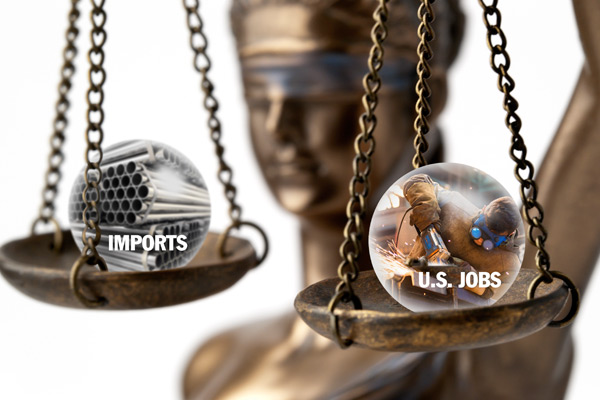
Trump’s Trade Policy
By Jim Stavis
First off, trust me this is not going to be a political presentation. I learned that lesson a long time ago. Trump, in his efforts to help U.S. companies remain competitive, has thrown the first gauntlet on behalf of the U.S. steel industry. He has raised a self-initiated case to support the industry, but one that will not meet the legal standards of the World Trade Organization (WTO), which might lead to disputes and retaliation from trading partners. What exactly does this mean?
U.S. trade law falls into four baskets. The first is anti-dumping: Did unfairly low priced goods cause injury to U.S. firms? The second is countervailing duty: Did competitors to U.S. firms receive illegal government subsidies? Third is the safeguard: Has an unexpected surge in steel imports hurt the U.S. steel industry? Finally, comes the exemption where the administration can take action against imports that may threaten national security.
It is plausible that Trump wants more self-initiated cases simply to take political credit for protecting U.S. firms and jobs. Yet this approach will likely have costs. First, it may create more trade barriers, inflicting potential harm upon the U.S. economy. Steel tariffs from abroad would increase costs for U.S. manufacturers and construction companies, particularly on the west coast where we rely upon imported steel. Even if some U.S. jobs were saved, they would come at the expense of jobs in other sectors. Secondly, there is less evidence to support new trade barriers, making them vulnerable to WTO actions from other countries. This would be a departure from our 70-year-old commitment to promote international trade and would encourage a tit-for-tat retaliation. China did this repeatedly between 2009 and 2011, harming U.S. exports in sectors such as poultry, automobiles and steel. You don’t want to mess with our chicken trade!
Ultimately, Trump used the national security exemption as the mechanism to impose trade restrictions. Since there are no clearly accepted guidelines for this, the national security exemption is difficult to refute. It can, therefore, be easily abused. Finally, there is a level of skepticism of this action believing that there will be winners and losers with the trade barriers themselves. This may tilt the playing field so that certain industries are protected while others are not. But, as I began this piece, I do not want to be viewed as taking a side. You can judge for yourself.